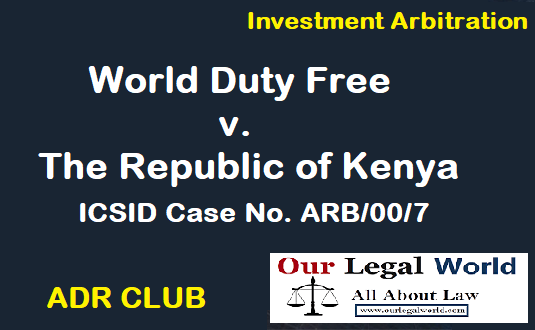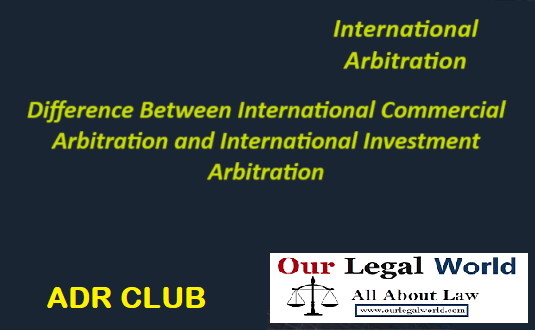The World Duty Free v Kenya ICSID Case evolved and came to ICSID because a Mr Pattni and Ali got into an ownership dispute over WDF. The courts in Kenya found that Pattni was the rightful owner of this company.
World Duty Free v Kenya ICSID Case
Party
- WDF COMPANY LIMITED [CLAIMANT]
- THE REPUBLIC OF KENYA [RESPONDENT]
Arbitrators
- Judge Gilbert Guillaume (president)
- Hon. Andrew Rogers (claimant appointee)
- Mr. V. V. Veeder (respondent appointee)
Forum and applicable procedural rules
- International Centre for Settlement of Investment Disputes (ICSID)
- ICSID Rules of Procedure for Arbitration Proceedings
Fact
WDF, in initiating an ICSID claim against Kenya, asserted that the expropriation of its duty-free concession was executed through the misuse of the corrupt Kenyan judiciary, resulting in the appointment of a receiver over WDF operations in Kenya. Therefore, the foundation of its case rested on allegations of corruption. However, in the sole witness statement provided by its owner and CEO, Mr. Nassir Ibrahim Ali, a citizen of Dubai (and Pakistan, Iran, and Canada, according to his multiple passports), Mr. Ali voluntarily detailed an extraordinary background of the circumstances surrounding the procurement of the concession contract.
Also Read: Arbitration law in India- Overview
In this case, WDF alleged that the Republic of Kenya violated its obligations under the Bilateral Investment Treaty (BIT) between Kenya and the United Kingdom. World Duty Free claimed that the Kenyan government took actions that amounted to an expropriation of its investment in a duty-free store at Jomo Kenyatta International Airport in Nairobi.
The dispute centered on the cancellation of a concession agreement that allowed World Duty Free to operate duty-free stores at the airport. The Kenyan government terminated the agreement and subsequently took over the duty-free retail operations.
The arbitral tribunal, constituted under the ICSID, heard the case and rendered its decision. The tribunal found that the Republic of Kenya had breached its obligations under the BIT by expropriating the investment of World Duty Free without providing adequate compensation. As a result, the tribunal awarded substantial damages to World Duty Free.
This case underscores the importance of investment treaties and the mechanisms available for resolving disputes between foreign investors and host states. It also highlights the significance of arbitration in international investment law, providing a forum for resolving disputes that arise between investors and states, and ensuring a fair and neutral process for resolving conflicts related to investments. The case also serves as an illustration of how investor-state dispute settlement mechanisms function within the framework of international investment law.
Reference
https://www.iisd.org/itn/en/2018/10/18/world-duty-free-v-kenya/

![Jamia Hamdard Mediation Competition 2025 at School of Law, HILSR [21st February 2025]](https://www.ourlegalworld.com/wp-content/uploads/2024/12/Screenshot-11-min-1.png)






